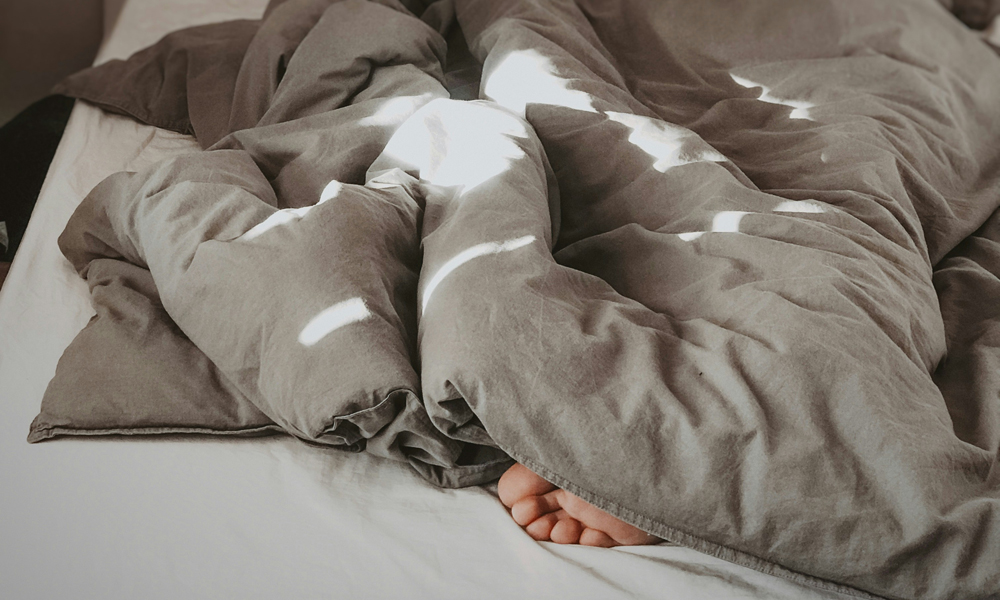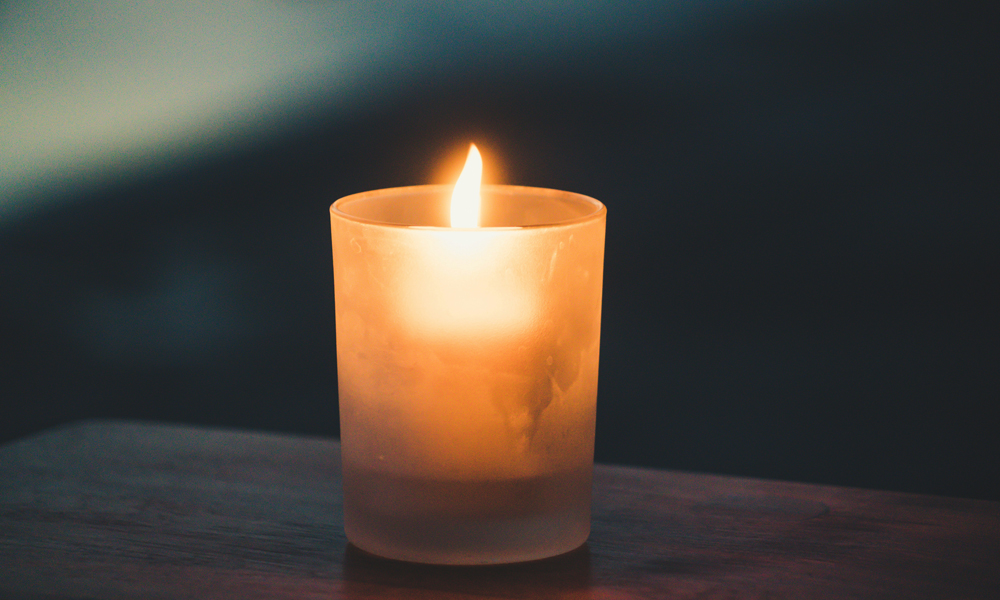Your skincare conundrums might be transformed with a little shut-eye
By Adriana Ermter
Whether you’re a proud member of the 5 a.m. club, a die-hard night owl or someone who hits the snooze button a few too many times, one thing’s for sure: sleeping your way towards radiant skin is having a moment. Thanks to TikTok, the internet is obsessed with sleepmaxxing – a trend that exploded in late 2024, driven largely by Gen Z as a counter to hustle culture and a response to chronic sleep deprivation. Think sleep masks, lavender oil on pillowcases and even mouth taping all in the name of optimizing nightly rest. (Side note: mouth taping has not been clinically found to be helpful, and may even be a health risk in some situations.) With hashtags like #sleepmaxxing and #sleephack racking up millions of views, the goal is clear: sleep smarter, glow harder.
Among those leading the charge is influencer Kylie Nicole Day, who boasts more than 1.2 million likes on her video detailing an extensive bedtime ritual complete with blue light glasses, white noise machines and blackout curtains. Meanwhile, Australian content creator Jakey Boehm has levelled up by live-streaming his sleep sessions, letting viewers interact with his environment in real time, a niche that’s landed him a spot among TikTok’s top 50 streamers. Still, beyond the hype and likes, these influencers have connected the dots between restorative sleep and better skin. And science backs them up.
While you’re off in dreamland, your body isn’t just recharging: it’s working overtime to repair and renew your skin. According to an April 2025 article published by the National Library of Medicine, blood flow to the skin increases, collagen production surges and cell turnover accelerates while you sleep, helping to undo the day’s damage from sun exposure, pollution and stress. It all ties into your circadian rhythm – your internal 24-hour clock – which regulates everything from sleep-wake cycles to hormone release and skin regeneration. Since this rhythm syncs with natural light and dark cues, maintaining a consistent sleep schedule can visibly improve your complexion. In other words, your body already has its own built-in skincare specialist and it works best when you’re resting. So before you hit the pillow tonight, here’s what you need to know about how sleep can benefit your specific skin type.
Dry skin: Replenish and hydrate
Parched, flaky skin doesn’t just crave a thick moisturizer, it’s begging for sleep. That’s because when you’re asleep, your skin becomes more permeable, making it the perfect time to soak up every last drop of your serums, lotions and creams. If you skip out on your zzzs, according to the Canadian Sleep and Circadian Network, you risk slower cell turnover and poor moisture retention, resulting in even drier skin. To lock in hydration while you snooze, clock your full eight hours and consider running a humidifier in your bedroom to keep the air (and your epidermis) comfortably dewy.
Dull skin: Brighten up
If your glow is gone and you’re waking up looking a little grey, your sleep habits might be to blame. Skimping on rest zaps your skin of blood flow, leaving your complexion looking tired and blah. The fix? Quality shut-eye. It boosts circulation, bringing colour and radiance back to your face naturally. Commit to a consistent sleep schedule and watch your skin shift from lifeless to luminous.
Aging skin: Preserve and protect
Want to hit pause on the aging process? Us too! And sleep is the secret weapon. It’s when your body cranks up collagen production to keep your skin firm and elastic. Chronic sleep loss, on the other hand, accelerates signs of aging and weakens your skin barrier, according to a 2024 article by the Sleep Foundation. Their advice: aim for seven to nine hours of shut-eye each night, and invest in a silk pillowcase to cut down on pillow-face creases and help your skin ease into the morning line-free.
Combination skin: Harmonize and heal
Dry patches here, oily zones there, combination skin needs balance – and sleep can help deliver it. Quality rest helps repair your skin barrier and regulate both sebum and hydration levels, creating harmony across your face. According to Snore MD Canada, the nightly ritual of counting innumerable sheep can elevate cortisol, which breaks down collagen and contributes to a weakened barrier. Regular, restful slumber helps your T-zone chill out and your cheeks stay supple, creating a more unified and resilient complexion.
Oily skin: Balance and control
If you’re waking up greasy, don’t just blame your skin care: your sleep habits may be sabotaging your oil balance. Remember what Snore MD said about a lack of rest hiking up cortisol, the stress hormone that also stimulates your skin’s oil glands? Well, it applies here too…and with the added and unwanted extras of shine and breakouts. The good news is that enough dream time can help regulate hormones, taming that excess sebum and keeping your complexion calm and balanced.
Sensitive skin: Calm and soothe
Sleep is more than rest – it’s repair mode, especially for reactive skin. A 2022 article published by the National Library of Medicine explains how deep sleep dials down cortisol levels, helping reduce inflammation and flare-ups linked to conditions like eczema and rosacea. Miss out on your 40 winks and those skin sensitivities may spike. Prioritize a wind-down routine and enough rest to help keep your complexion chill and irritation-free.
Five Tips For More Radiant Skin
The Sleep Foundations offers these five tips to help you maximize your rest so that you rise radiant.
Establish a consistent sleep schedule: Going to bed and waking up at the same time every day helps regulate your body’s internal clock, promoting better sleep quality.
Create a restful environment: Ensure your bedroom is cool, dark and quiet. Consider prescribing to TikTok influencers’ use of blackout curtains and white noise machines to minimize disturbances.
Limit screen time before bed: The blue light emitted by smartphones, iPads, Kindles and computers can interfere with melatonin production. Aim to disconnect at least an hour before bedtime.
Incorporate a nighttime skincare routine: Cleansing and moisturizing before bed can enhance your skin’s natural repair processes during sleep.
Stay Hydrated: Drinking water throughout the day keeps your skin hydrated, but avoid excessive intake right before bed to prevent nighttime awakenings.
ADRIANA ERMTER is a Toronto-based lifestyle-magazine pro who has travelled the globe writing about must-spritz fragrances, child poverty, beauty and grooming.







POST A COMMENT